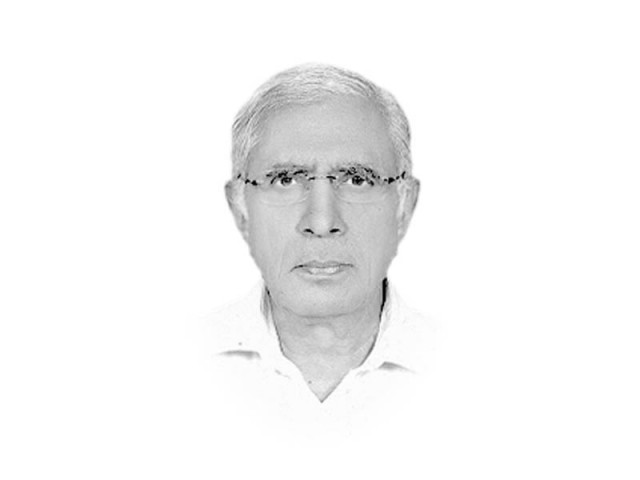A new-look NSC?
Leghari came up with the idea of CDNS to ensure the president, PM and the COAS kept from transgressing their powers.

The writer is Executive Editor of The Express Tribune
It was perhaps, with this venture in mind that General Yahya Khan had first mooted the concept of the National Security Council (NSC) in the 1970s. It was decidedly a well thought-out plan of the army to arrogate to itself the top constitutional seat in the decision-making process of governance. General Ziaul Haq then tried to sneak the relevant clause through the Eighth Amendment in 1985 but failed in the face of stiff resistance from a parliament, which he himself had handpicked. Then President Farooq Leghari, perhaps at the behest of the then army leadership, came up in 1997 with the idea of the Council for Defence and National Security (CDNS). Leghari had argued that the proposed institution would help keep the troika members — the president, the prime minister and the chief of the army staff (COAS) — from transgressing the limits of their respective constitutional powers. The incoming Nawaz government threw it out of the window as it suspected that the army was making yet another attempt to empower itself to call all the shots without having to violate the Constitution. Next came the COAS General Jehangir Karamat’s unusual public pronouncement on the need to set up an NSC. Prime Minister Nawaz Sharif did not like the advice one bit and forced the COAS to resign. But according to unconfirmed reports that were floating about at the time Musharraf was planning his coup, the then foreign minister, Sartaj Aziz, having found the heavy-handed interference of the army in his ministry unbearable, is said to have convinced Nawaz to formalise the role of the army in formulating foreign policy (without, however, giving the institution the final say in the process and limiting it only to the task of contributing its considered input) through an act of parliament.
The prime minister was to head the proposed institution comprising four ministers — foreign, finance, interior and defence — and the three service chiefs as well as the chairman joint chiefs of staff committee. An NSC adviser to the prime minister would be its member. The NSC adviser would head the planning committee of the NSC. Its members would be the federal secretaries of foreign affairs, interior, finance and defence; the three intelligence chiefs from the Directorate, the Military Intelligence, the Inter-Services Intelligence and the Directorate of the Intelligence Bureau. This planning committee would be tasked to prepare position papers and recommendations on all security issues. This committee would also be supported by an advisory committee, which would comprise technocrats in the national security field.
But Musharraf’s coup on October 12, 1999 killed the proposal even before it could see the light of day. In 2004, Musharraf unfolded his own NSC proposal, which conceptually was too diabolic as its membership had included all the four chief ministers, as well as the leader of the opposition. On the face of it, the composition of the NSC reflected a truly democratic character, but within its very composition rested the NSC’s debility. Luckily, it was never convened. And the last PPP-led coalition government also very rightly never felt the need to convene the council. In all likelihood, the composition and structure of the CCNS proposed at the last DCC would be the same as was earlier conceived and designed by the second Nawaz government. Moreover, the decisions taken at the last DCC, especially on the subjects of war on terror, relations with Afghanistan and India, and the issue of local militants, give one an idea as to who has finally started calling the shots on defence and foreign policy matters.
Published in The Express Tribune, August 28th, 2013.
Like Opinion & Editorial on Facebook, follow @ETOpEd on Twitter to receive all updates on all our daily pieces.















COMMENTS
Comments are moderated and generally will be posted if they are on-topic and not abusive.
For more information, please see our Comments FAQ